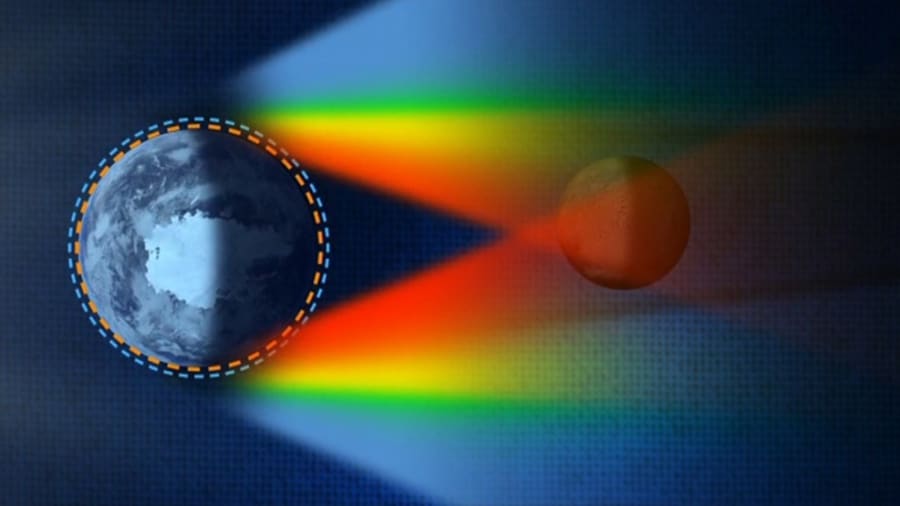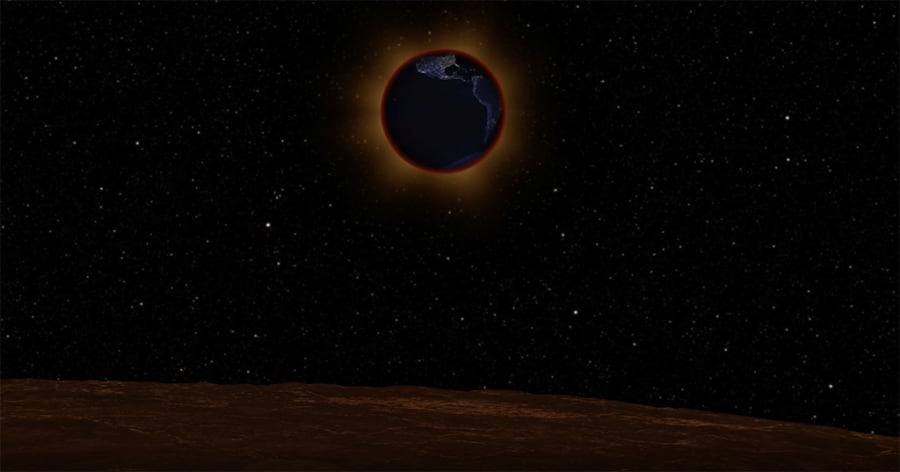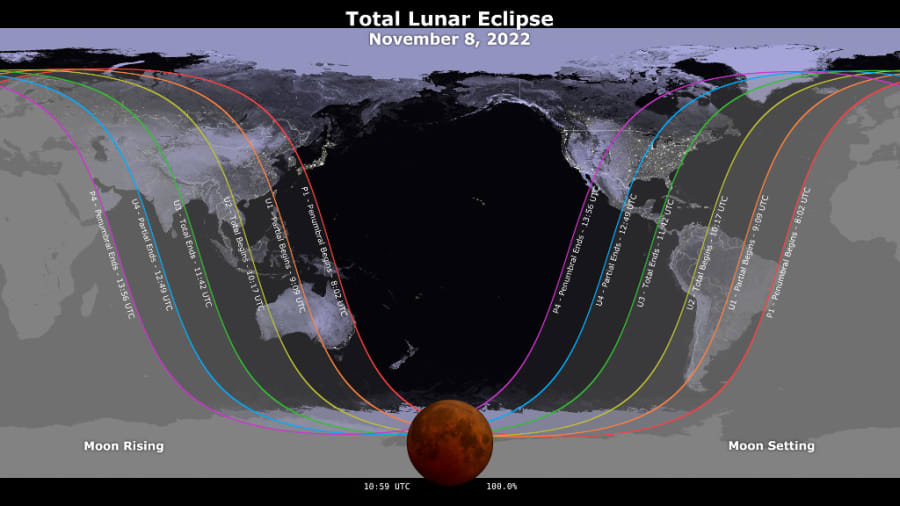The last total lunar eclipse for three years will take place on Tuesday, Nov. 8, 2022.
Some non-election related Nov. 8 content for you, the last lunar eclipse for three years will occur early Tuesday morning, according to NASA.
Recommended Videos
There will be partial and penumbral lunar eclipses within the next three years, but the next total lunar eclipse will not happen until March 14, 2025.

A lunar eclipse occurs when the sun, Earth, and moon align, leaving the moon in the Earth’s shadow.
You won’t need any kind of special equipment to observe the eclipse, but NASA says a dark environment away from lights will make for the best viewing conditions.
Read: What to know about the only certified Dark Sky Park in Southern Michigan
The eclipse will take place Tuesday, Nov. 8 between 3:02 a.m. and 6:42 a.m. EST.
The totality stage, when the moon is entirely in the Earth’s shadow, will be at approximately 5:17 a.m. EST.

Lunar eclipses are often called “blood moons” because the moon turns a reddish color when it enters the Earth’s shadow.
NASA says the moon turns red for the same reason our sky is blue, “the Moon turns red because the only sunlight reaching the Moon passes through Earth’s atmosphere. The more dust or clouds in Earth’s atmosphere during the eclipse, the redder the Moon will appear. It’s as if all the world’s sunrises and sunsets are projected onto the Moon.”




